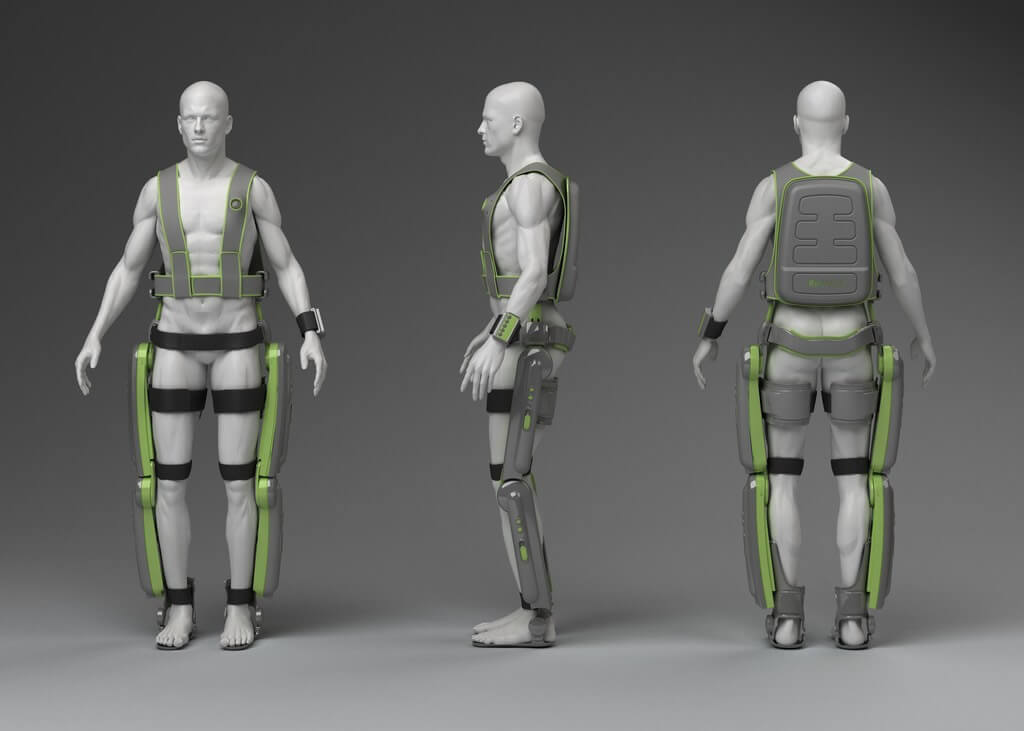In the ever-evolving world of mechanical engineering, staying informed about the latest trends is crucial to remain competitive and excel in your career. As we step into 2025, several exciting developments are set to shape the landscape of mechanical engineering professions. In this blog post, we’ll delve into the key trends that will influence mechanical engineering careers this year.
Employment in Mechanical Engineering
Mechanical Engineering Employment Growth:
The field of mechanical engineering is experiencing steady growth, with the total employment of mechanical engineers projected to increase by 9 percent from 2014 to 2025. This upward trajectory is driven by various factors that are contributing to the industry’s expansion.
One significant factor is the increasing demand for innovative solutions in various sectors, such as manufacturing, automotive, and aerospace. As companies seek to stay competitive and meet evolving customer demands, they rely on mechanical engineers to design and develop cutting-edge products and systems.
In addition, advancements in design and technology are expanding the horizons of mechanical engineering. Innovations like automation, 3D printing, robotics, and artificial intelligence are opening up new possibilities, further driving the need for skilled mechanical engineers.
Leading Employer in 2025:
Manufacturing is expected to emerge as the leading employer of mechanical engineers in 2025, accounting for a substantial 46.2 percent of the profession. The manufacturing sector’s dominance can be attributed to its continuous growth and transformation.
Manufacturers are embracing advanced technologies to enhance their production processes and deliver high-quality products efficiently. This shift towards automation and innovation has created a robust demand for mechanical engineers to design, maintain, and optimize these systems.
The rise of smart manufacturing, powered by technologies like the Internet of Things (IoT) and big data, is at the forefront of this transformation. Smart manufacturing promises efficient, data-driven production, which relies heavily on mechanical engineers to implement and oversee these high-tech processes.
Latest Technologies in Mechanical Industry
1. Automation
Automation is a driving force in the mechanical engineering field. Its impact extends across various industries, including automotive, aerospace, and manufacturing. Automation not only streamlines production processes but also reduces errors, enhances precision, and boosts productivity.
Real-world applications of automation in mechanical engineering are plentiful. For instance, robots are increasingly used in manufacturing to perform tasks that are repetitive, dangerous, or require extreme precision. This not only increases production speed but also improves the safety of workers.
2. Computer-Aided Engineering
The importance of computer-aided engineering (CAE) tools cannot be overstated in modern mechanical engineering. CAE software enables engineers to simulate and analyze complex systems and components.
Advancements in CAE are making it easier to perform virtual testing, iterate on designs, and reduce the time and costs associated with physical prototypes. These tools have a profound impact on design and analysis processes in the field.
Explore CAD courses specially designed for Mechanical Engineers.
3. Internet of Things (IoT)
The integration of the Internet of Things (IoT) is transforming mechanical systems by enabling real-time data collection and remote monitoring. In mechanical engineering, IoT is used to enhance predictive maintenance and gain insights into system performance.
For instance, sensors placed on machinery can monitor temperature, vibration, and other critical parameters. The data collected is transmitted via IoT to a central system for analysis. Mechanical engineers play a pivotal role in designing and implementing these IoT solutions.
To know more, check IoT Certification Course from CADD Centre
4. 3D Printing
3D printing is revolutionizing the way mechanical engineers approach product development. This technology allows engineers to create intricate prototypes and components with exceptional accuracy and speed.
The impact of 3D printing in manufacturing engineering is further amplified by its applications in rapid prototyping and customized manufacturing. For example, in the aerospace industry, 3D printing is used to create lightweight yet robust components for aircraft.
Get certified in 3D Printing training to stand out.
5. Robotics
Robots are becoming an integral part of the mechanical engineering landscape. These mechanical marvels are used in various industries for tasks such as welding, painting, and assembly. The advent of collaborative robots, is enhancing human-robot cooperation, making manufacturing processes safer and more efficient.
Emerging trends in robotics involve developments in AI, allowing robots to perform complex tasks with a high degree of autonomy. The field of robotics is brimming with opportunities for mechanical engineers, from designing robotic systems to programming and maintaining them.
Learn how to design and build robots using machine learning algorithms and Python.
6. Artificial Intelligence
Artificial intelligence (AI) is changing the way mechanical engineers approach problem-solving. AI-powered systems are capable of analyzing vast datasets to identify patterns, optimize designs, and predict equipment failures.
In the mechanical engineering sector, AI-driven solutions are being used to enhance predictive maintenance, quality control, and product design. This not only improves operational efficiency but also reduces costs by minimizing downtime.
7. Nanotechnology
Nanotechnology is another game-changer in mechanical engineering. Engineers are exploring the applications of nanomaterials to create stronger, lighter, and more resilient components.
Recent developments in nanotechnology have led to innovations like super-strong carbon nanotubes and materials with extraordinary thermal conductivity. Mechanical engineers are at the forefront of utilizing these materials to enhance the performance of various products.
Demand Of Mechanical Engineers
Predictive and Control Engineering:
The demand for mechanical engineers skilled in predictive and control engineering is on the rise. As vehicles become more advanced and interconnected, there is a need to predict and control heat distribution within these complex systems.
In the automotive industry, for example, mechanical engineers are responsible for designing cooling systems that ensure engines operate within optimal temperature ranges. Predictive and control engineering is essential for preventing overheating and maintaining the efficiency of these systems.
Material Response and Wear:
Understanding how materials respond to forces and wear is a critical aspect of mechanical engineering. In various industries, from aerospace to construction, mechanical engineers must ensure that materials used in designs can withstand environmental conditions and loads.
Applications of material response and wear analysis are wide-ranging. Engineers work to develop materials that are durable, corrosion-resistant, and capable of withstanding extreme conditions, all while adhering to industry standards.
Human-Machine Interaction:
The demand for mechanical engineers to focus on how humans interact with objects and environments is growing. This aspect of engineering extends to user experience (UX) design, ergonomic considerations, and safety protocols.
For instance, in the automotive industry, mechanical engineers collaborate with experts in human factors to design comfortable and safe vehicle interiors. They consider factors like seating comfort, placement of controls, and visibility to ensure a positive user experience.
Staying Ahead in Mechanical Engineering
Mechanical engineering has always demanded a diverse skill set, but these trends are pushing boundaries. Professionals must adapt to remain competitive in this evolving landscape.
The CADD Centre offers mechanical engineering courses. These courses keep you at the forefront of the industry by aligning with emerging technology and industry trends. Prepare to lead and innovate in the future of mechanical engineering.
Are you ready for what’s next? Explore our CAD courses and apply to be a part of the mechanical engineering evolution.
FAQs: Mechanical Engineering Careers in 2025
Is mechanical engineering a stable job?
Mechanical engineering offers stable career prospects. As industries continue to rely on innovation, mechanical engineers play a pivotal role in designing and maintaining cutting-edge systems. With the growing demand for mechanical engineers, job stability remains a strong feature of the profession.
Which mechanical engineering specialization is best for the future?
Several specializations show promise for the future. Fields such as 3D Printing, Robotics, and smart manufacturing are poised for significant growth. By focusing on these areas, you can position yourself for a rewarding and impactful career in mechanical engineering.
Which country has the highest demand for mechanical engineers?
Countries with robust manufacturing sectors, such as the United States, Germany, and China, often have a high demand for mechanical engineers. The demand may vary based on the local industry landscape and technological advancements.
What are the best industries for mechanical engineers in the future?
Mechanical engineers can thrive in industries like aerospace, automotive, renewable energy, and healthcare. These sectors offer opportunities to work on groundbreaking projects and contribute to technological advancements. Industries embracing AI, robotics, and IoT also provide exciting career prospects.
What are the top skills mechanical engineers need to succeed in 2025?
To thrive in the evolving job market, mechanical engineers should master high-demand skills like CAD design, automation engineering, 3D printing, IoT systems, and AI integration. These cutting-edge mechanical engineering skills are critical for securing high-paying jobs in industries such as automotive, aerospace, and smart manufacturing.
How can I future-proof my mechanical engineering career in India and abroad?
Future-proof your mechanical engineering career by enrolling in advanced CAD certification courses, learning emerging technologies like robotics and artificial intelligence, and gaining hands-on experience in real-world projects. Mechanical engineers with global certifications and industry-relevant expertise are in high demand across India, the Middle East, Europe, and North America.





